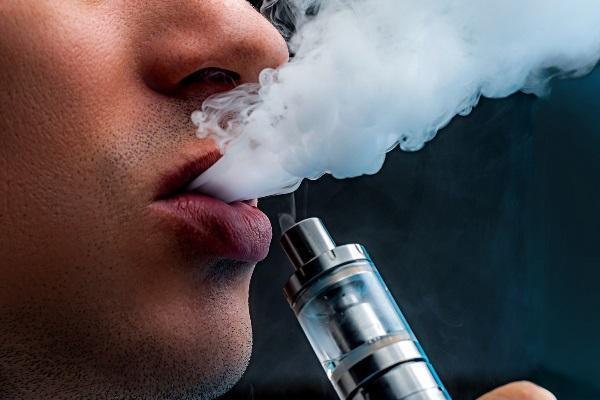A new study titled “Comparison of caries risk between patients who use vapes or e-cigarettes and those who do not: a cross-sectional study” found that the use of e-cigarettes and vaping devices causes a very high risk of dental caries.

In addition to the existing evidence for an association between vaping and poor oral health, researchers at Tufts University School of Dental Medicine (TUSDM) in a recent study assessed the association between e-cigarette and vaping device use and caries risk. They found that vaping increased the risk of developing cavities. Based on their results, they recommended that the use of e-cigarettes and vaping devices should not only be included in routine dental questionnaires and medical history, but also be considered as one of the risk factors that increase the risk of caries in a patient.
According to the Centers for Disease Control and Prevention (CDC), approximately 9.1 million American adults and two million teenagers use tobacco products to vape. However, despite a growing body of evidence linking vaping to poor overall health, there is little public awareness of the issue. Previous research has shown that the use of electronic vaping devices can increase the risk of periodontal disease and damage tooth enamel. However, more research is needed to understand the link between e-cigarette use and oral health, and the present study was the first to examine the link between vaping and increased risk of cavities.
For the study, researchers analyzed data from more than 13,000 patients over the age of 16 who were treated at Tufts Dental Clinics from 2019 to 2022. They found that approximately 79% of patients who smoked or used e-cigarettes had a higher risk of developing tooth decay compared to 60% in the control group. The researchers noted that it was not asked whether the devices used contained nicotine or tetrahydrocannabinol, the main psychoactive compound found in cannabis.
“It is important to understand that these are preliminary data,” lead author Dr. Karina Irusa, an assistant professor of general nursing at the university, said in a press release. “It's not 100% conclusive, but people really need to be aware of what we're discovering in the study,” she added.
According to researchers, the use of electronic cigarettes can contribute to the development of tooth decay due to the high sugar content and viscosity of vaping liquid. When sprayed and inhaled, the liquid sticks to the teeth, and the evaporating aerosols alter the oral microbiome, allowing cavities-causing bacteria to enter the oral cavity. It has also been shown that vaping can promote cavities in places where they don't normally occur, such as the lower edges of front teeth.
In light of their findings, the researchers recommended that dentists ask patients about e-cigarette use as part of their medical history. This also applies to pediatric dentists, as the number of middle and high school students using e-cigarettes in the US is high, reaching 7.6% in 2021, according to the CDC.
Furthermore, the researchers suggest that e-cigarette users should follow a stricter protocol for caries management, which may include prescription fluoride toothpaste and fluoride rinse and frequent dental checkups.
“Depending on how severe caries is, its treatment is time consuming and expensive,” commented Dr. Irusa. “This is a vicious circle that will not stop,” she concluded.
